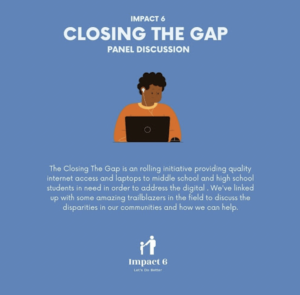 As the new school year begins and COVID-19 variant cases are on the rise, some school districts decided to continue utilizing remote learning applications. Even schools that have returned to in-person learning see the benefits of using online learning software that students and teachers relied on during the pandemic. Hybrid learning models amplify the importance of ensuring that every student has access to high-speed Internet connections and the devices they need to meaningfully engage in online learning programs.
As the new school year begins and COVID-19 variant cases are on the rise, some school districts decided to continue utilizing remote learning applications. Even schools that have returned to in-person learning see the benefits of using online learning software that students and teachers relied on during the pandemic. Hybrid learning models amplify the importance of ensuring that every student has access to high-speed Internet connections and the devices they need to meaningfully engage in online learning programs.
Next Century Cities’ Policy Counsels Ryan Johnston and Corian Zacher, joined California-based nonprofit Impact 6 on August 27, 2021, for a panel discussion on the homework gap. Other panelists included Libraries Without Borders’ Senior Program Manager Azure Grimes, Rutgers University Ph.D. Candidate and New Currents’ Collective Strategist Phela Townsend, and California Community Foundation Digital Equity Initiatives‘ Director Shayna Englin.
The discussion centered around how communities and policymakers can make information about connectivity resources more accessible to consumers. Panelists detailed their hopes for the future of digital equity and inclusion work nationwide.
Though distance learning received national attention throughout the pandemic, policies that support student connectivity must also center household needs. With entire households working, learning, and accessing healthcare and financial services from home, it is impossible to separate student device and service needs from the needs of caregivers and other family members.
Corian highlighted state strategies for expanding infrastructure and developing digital equity toolkits for communities. They also expressed optimism that new federal funding sources will allow states to continue and expand existing digital inclusion initiatives while providing flexibility to create new programs as needed.
Ryan’s remarks focused on how federal policy making has changed from solely relying on broadband deployment to including resources to address affordability, adoption and digital literacy challenges. He underscored that the new federal infrastructure bill includes generational funding that will provide resources for communities to identify and address connectivity challenges in new and exciting ways.
Each community faces different connectivity challenges just as each consumer faces unique circumstances that often make blanket approaches combating the homework gap and digital divide impractical. Ensuring that every stakeholder has knowledge of and the ability to access connectivity resources is essential.
You can watch the full recording of the discussion here.
